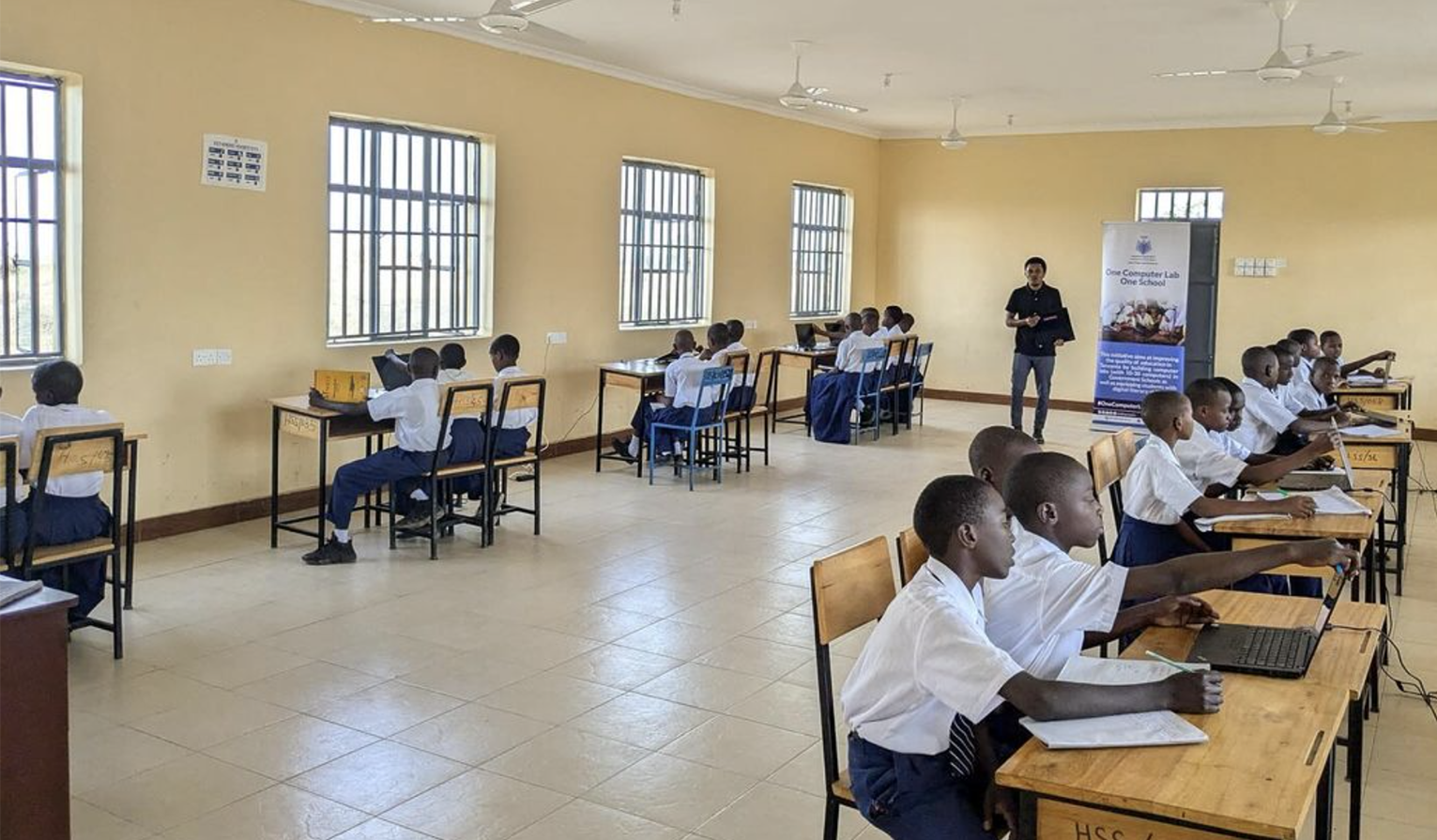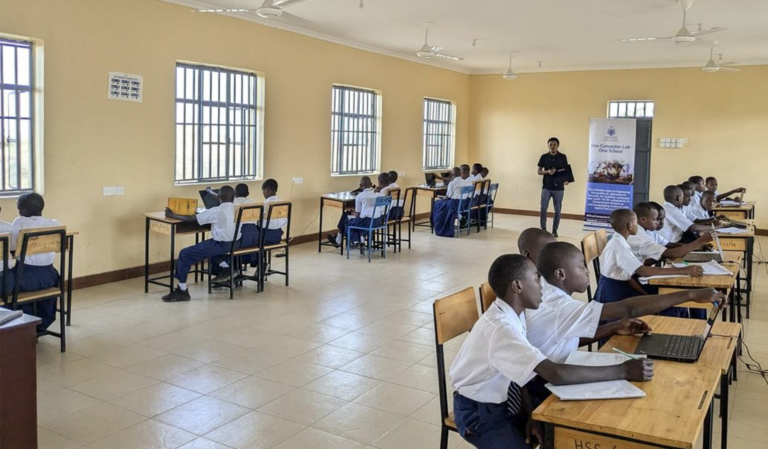
Students in Drexel’s “Culture & Community Development” course helped bring computer access to a school in Kilimanjaro, Tanzania.
Drexel students and their instructors are narrowing the digital divide in Africa, thanks to an immersive global community-based learning program called the Intensive Course Abroad (ICA) program.
An ICA course that is now in its second year, “Culture & Community Development,” partnered with two on-the-ground organizations to open a computer lab at a secondary school in northern Tanzania in 2023.

Drexel ICA students, led by instructor Ahaji Schreffler (front row, left), with Gloria Anderson (front row, third from the left), founder of the Tanzania Enlightenment Development Innovations nonprofit. The inspiring collaboration between Drexel and TEDI, born from Anderson’s time as a Mandela Washington Fellow, aims to boost digital literacy for Tanzania’s youth.
This initiative not only improved digital literacy and access to educational opportunities for 400 students but also showcased the profound impact of collaborative educational initiatives. In preparation for the lab’s opening, the school received a new paint job and signage, and the district repaired a road leading to the school, which benefitted the entire area. At the launch, the district commissioner visited the school for the first time and ended up committing $40,000 for the school to receive additional resources and improvements. In 2024, Drexel students from the ICA program helped to open two more computer labs in the country.
“It was amazing to see everything progress from the initial brainstorming to the project growing arms and legs and becoming way bigger than anyone anticipated,” says Senior Director of Education Abroad Ahaji Schreffler, who co-taught the course with Shardé Johnson, executive director for diversity, inclusion and belonging and director of Drexel’s Center for Black Culture (CBC).
Like all ICA courses, “Culture and Community Development” involved pre-departure class sessions and community-based learning and training before that term’s break week, which students then spent living and learning abroad. After the trip, the students produced a post-trip project that integrated their experiences and learning.
“We emphasize to the students throughout the entire experience that everything that we’re talking about in terms of culture and how culture informs community development and approaches can be applied right here in Philadelphia,” says Schreffler.
For this class, the students came from a variety of disciplines and were encouraged to think about the curriculum, culture and community development through their personal experiences and passions. The final project involved an audio-visual project; one architecture major in the Antoinette Westphal College of Media Arts & Design, for example, focused on using indigenous local wisdom and decolonizing architecture.
During the nine days in Tanzania, the class met with three different tribes — the Rundugai, the Maasai and the Chagga — to learn more about community development from different lenses related to education, health, business and sustainability, and how that could come together with consideration to traditions and available resources. They also visited and learned from people working in local cultural, commercial, and health centers, and went on a safari at Tarangire National Park.
“All of the community and tribal visits covered how tradition and culture shows up in the ways that people develop themselves and empower themselves, whether it’s farming, health, education, other forms of business and so much more,” says Schreffler.



